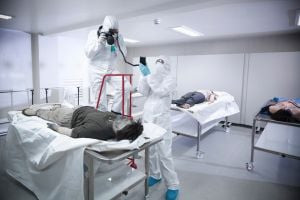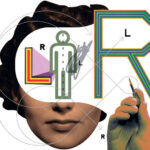Neonatology, a specialized branch of pediatrics, centers on the delicate medical care of newborn infants, particularly those born prematurely or facing health challenges. A Neonatal Doctor, also known as a neonatologist, is a dedicated physician providing expert and comprehensive care to these vulnerable newborns. From the moment of birth through their initial weeks and months, often in the Neonatal Intensive Care Unit (NICU), these specialists are committed to ensuring the best possible start in life for their tiny patients. With a focus on advanced medical interventions, meticulous monitoring, and compassionate support, neonatal doctors play a vital role in promoting the healthy development and well-being of newborns. This demanding yet profoundly rewarding field requires a deep understanding of a wide spectrum of conditions unique to newborns, including respiratory distress, infections, congenital conditions, and the complexities of premature birth. Neonatal doctors are at the forefront of safeguarding the health and future of the most fragile patients, offering specialized care during their critical early stages of life.
What Does a Neonatal Doctor Do?
A neonatal doctor is a specialized physician providing medical care and treatment to newborn infants within a hospital setting. They are integral members of the Neonatal Intensive Care Unit (NICU) team, collaborating closely with nurses, respiratory therapists, nutritionists, and other healthcare professionals. Their primary role is to deliver comprehensive and specialized care, ensuring the well-being and healthy development of newborns facing a variety of medical challenges. The patients under a neonatal doctor’s care can include:
- Premature infants: Babies born before 37 weeks of gestation. Prematurity can lead to underdeveloped organs and systems requiring specialized medical support.
- Newborns with life-threatening illnesses: Infants diagnosed with severe conditions such as infections, congenital heart defects, or respiratory distress requiring immediate and intensive intervention.
- Babies with congenital abnormalities or genetic disorders: Newborns born with structural anomalies or inherited conditions that necessitate specialized medical management and long-term care planning.
- Critically ill newborns: Infants with complex medical needs requiring advanced life support, continuous monitoring, and a multidisciplinary approach to care in the NICU.
Medical Conditions Treated by Neonatal Doctors
Neonatal doctors are equipped to manage a broad spectrum of medical conditions affecting newborns. Some of the most frequently encountered conditions include:
-
Premature Birth Complications: Prematurity is a leading reason for neonatal care. Infants born prematurely often experience challenges due to underdeveloped organs, particularly the lungs. This can lead to difficulties breathing, feeding, and maintaining body temperature. Neonatal doctors provide critical support to help these fragile infants develop and thrive.
-
Respiratory Distress Syndrome (RDS) and Breathing Problems: Newborns, especially those born prematurely, are susceptible to breathing disorders like Respiratory Distress Syndrome. RDS occurs when the lungs lack surfactant, a substance that helps keep air sacs open. Neonatal doctors utilize interventions such as ventilators, supplemental oxygen, surfactant replacement therapy, and other advanced medical procedures to support effective breathing and lung function.
-
Congenital Malformations and Birth Defects: Neonatal doctors are experts in managing congenital malformations, which are structural or functional abnormalities present at birth. These can affect any organ system and include a wide range of conditions, from heart defects and neural tube defects to gastrointestinal and musculoskeletal abnormalities. Neonatal doctors diagnose, treat, and coordinate care for newborns with these complex conditions, often working with surgical specialists.
-
Newborn Infections: Due to their immature immune systems, newborns are highly vulnerable to infections. Neonatal doctors are skilled in diagnosing and treating various infections, including sepsis (blood infection), meningitis (infection of the brain and spinal cord), and pneumonia. Prompt administration of antibiotics and supportive care is crucial in managing these potentially life-threatening infections.
-
Metabolic Disorders in Newborns: Some infants are born with metabolic disorders, which disrupt the body’s ability to process food and nutrients. These disorders can lead to problems like hypoglycemia (low blood sugar) or jaundice (yellowing of the skin due to bilirubin buildup). Neonatal doctors manage these conditions through specialized feeding strategies, medications, and other targeted therapies to ensure proper metabolic function and prevent complications.
-
Seizure Disorders in Neonates: Seizures in newborns can be a sign of underlying neurological issues, such as brain injury or metabolic imbalances. Neonatal doctors are trained to identify the causes of seizures in newborns and initiate appropriate treatment, which may include anticonvulsant medications and addressing the underlying medical condition.
-
Birth Injuries and Trauma: Although less common, birth injuries can occur during the delivery process, potentially affecting the baby’s brain, spinal cord, or bones. Neonatal doctors assess and manage birth injuries, providing supportive care and collaborating with specialists like neurologists or orthopedic surgeons to optimize recovery and minimize long-term effects.
-
Nutritional Support for Newborns: Adequate nutrition is paramount for newborn growth and development, particularly for premature or sick infants who may have difficulty feeding orally. Neonatal doctors oversee nutritional management, which may involve tube feeding, intravenous (parenteral) nutrition, or specialized infant formulas to ensure babies receive the necessary calories and nutrients for optimal growth and recovery.
 swaddling-baby
swaddling-baby
Alt text: A peacefully swaddled newborn baby demonstrates the gentle care provided by neonatal doctors.
How to Become a Neonatal Doctor: Education and Training Requirements
The journey to becoming a neonatal doctor is a rigorous and lengthy process, requiring extensive education and specialized training beyond a bachelor’s degree. The typical steps include:
-
Complete a Bachelor’s Degree and Apply to Medical School: The first step is to obtain a bachelor’s degree, ideally with a strong foundation in science. Aspiring neonatal doctors then must apply to and be accepted into medical school to pursue a Doctor of Medicine (MD) or Doctor of Osteopathic Medicine (DO) degree. Medical school is a four-year program that combines classroom learning with clinical rotations in various medical specialties.
-
Complete Pediatric Residency: After medical school, graduates must complete a residency in pediatrics. Pediatric residency is a three-year program providing comprehensive training in general pediatrics, covering a wide range of medical issues affecting children from infancy through adolescence.
-
Complete a Neonatology Fellowship: To specialize in neonatology, physicians must undertake a fellowship in neonatal-perinatal medicine, often referred to as a pediatric critical care fellowship. Neonatology fellowships are typically three years in duration and provide in-depth training in the specialized care of newborns, especially premature and critically ill infants. This fellowship is where doctors gain expertise in the NICU environment.
-
Obtain Board Certification: The final step is to achieve board certification in neonatal-perinatal medicine. While not strictly mandatory for practice, board certification is highly recommended and often required by employers. It signifies a high level of expertise and competence in the field, enhancing career prospects.
Neonatal Doctor Residency and Fellowship: Training Duration
It’s important to clarify that neonatology itself is not a residency but a fellowship pursued after completing a pediatric residency. Therefore, the total training duration to become a neonatal doctor encompasses both residency and fellowship.
-
General Pediatrics Residency: A general pediatrics residency is typically three years long. During this period, physicians gain broad exposure to various pediatric subspecialties, including intensive care, cardiology, neurology, and more, providing a strong foundation for further specialization.
-
Neonatology Fellowship: Following pediatric residency, those aiming to become neonatal doctors embark on a specialized fellowship in neonatology. The standard duration for a neonatology fellowship is three years, dedicated to intensive training in newborn care.
Therefore, the combined residency and fellowship training specifically for neonatology lasts six years after medical school.
Neonatal Doctor Salary Expectations
The salary of a neonatal doctor can vary based on several factors, including experience, location, practice setting (academic vs. private), and specific responsibilities. Data from the American Association of Medical Colleges (AAMC) indicates the average salaries for neonatologists in academic settings:
- Assistant Professor: Approximately $270,000 per year.
- Associate Professor: Approximately $316,000 per year.
- Full Professor: Approximately $372,000 per year.
Salaries in private practice or other settings may differ. Generally, neonatology is a well-compensated medical specialty reflecting the extensive training and critical nature of the work.
Total Training Years to Become a Neonatal Doctor
The path to becoming a neonatal doctor is a significant commitment, requiring a substantial investment of time and effort in education and training. After completing a four-year bachelor’s degree, it typically takes at least ten years to become a fully qualified neonatal doctor. This includes:
- Four years of medical school.
- Three years of pediatric residency.
- Three years of neonatology fellowship.
Thus, the standard training duration is approximately ten years post-undergraduate education. While this is the typical timeframe, individual circumstances may lead to slight variations. Some individuals may dedicate additional time to research or other enriching experiences, while others may complete training within the standard duration.
 checking-heart-with-premature-baby
checking-heart-with-premature-baby
Alt text: A neonatal doctor attentively examines a premature baby’s heart, demonstrating the focused care in neonatology.
Is a Career as a Neonatal Doctor Right for You? Weighing the Pros and Cons
Choosing a career in neonatology is a significant decision. It’s essential to consider both the rewarding aspects and the inherent challenges of this demanding specialty.
Advantages of a Neonatology Career:
- Meaningful and Impactful Work: Neonatal doctors have the profound opportunity to make a significant difference in the lives of newborns and their families during a critical period. Witnessing fragile babies grow stronger and healthier is deeply rewarding.
- Intellectual Stimulation and Challenge: Neonatology is a complex and constantly evolving field, requiring continuous learning and adaptation. The challenging cases and the need for critical thinking can be highly stimulating for those who thrive in high-pressure environments.
- High Demand and Job Security: The demand for neonatal doctors is consistently strong, ensuring excellent job security and competitive compensation. The specialized skills of neonatologists are always needed in hospitals and NICUs.
- Collaboration and Teamwork: Neonatologists work collaboratively with a dedicated team of healthcare professionals, including pediatricians, nurses, and other specialists. This team-based environment can be supportive and intellectually enriching.
Disadvantages of a Neonatology Career:
- Emotional Toll: Caring for critically ill newborns can be emotionally demanding. Dealing with challenging cases and experiencing patient loss can take an emotional toll. Maintaining emotional resilience is crucial.
- Demanding Work Schedules: Neonatal doctors often face demanding work schedules, including on-call duties, long hours, and irregular shifts. These demanding schedules can impact personal life and require careful work-life balance.
- Highly Competitive Field: Neonatology is a competitive specialty, requiring extensive medical training and commitment. Limited residency and fellowship positions make the path challenging and require dedication.
- Stressful Environment: NICUs are high-pressure environments where critical situations arise frequently, demanding quick decision-making and action. This fast-paced and intense atmosphere can be stressful for some individuals.
- Risk of Burnout: The combination of emotional and physical demands can increase the risk of burnout if not managed effectively. Prioritizing self-care and work-life balance is essential for long-term well-being in this career.
Taking the First Steps Towards a Career in Medicine
If you are drawn to the challenges and rewards of neonatology and are considering a career in medicine, the first step is to begin your journey towards medical school. Consider exploring medical programs like the University of Medicine and Health Sciences as a potential starting point. You can find application information on our apply now page and explore our Med School page for frequently asked questions and further details about medical education. For personalized guidance, schedule a meeting with an admissions representative through this page.
Explore Related Medical Career Paths:
 family-medicine-and-internal-medicine-doctors family-medicine-and-internal-medicine-doctors |
Family Medicine vs. Internal Medicine |
|---|---|
 forensic-pathology-with-bodies forensic-pathology-with-bodies |
How to Become a Forensic Pathologist |
 sports-medicine-equipment sports-medicine-equipment |
Becoming a Sports Medicine Doctor |

Posted by Callie Torres
Callie Torres is a resident physician working at a top-tier institute in the Midwest. She is a freelance health and medical writer and an author of peer-reviewed medical articles. She also serves as a Captain in the United States Air Force.

